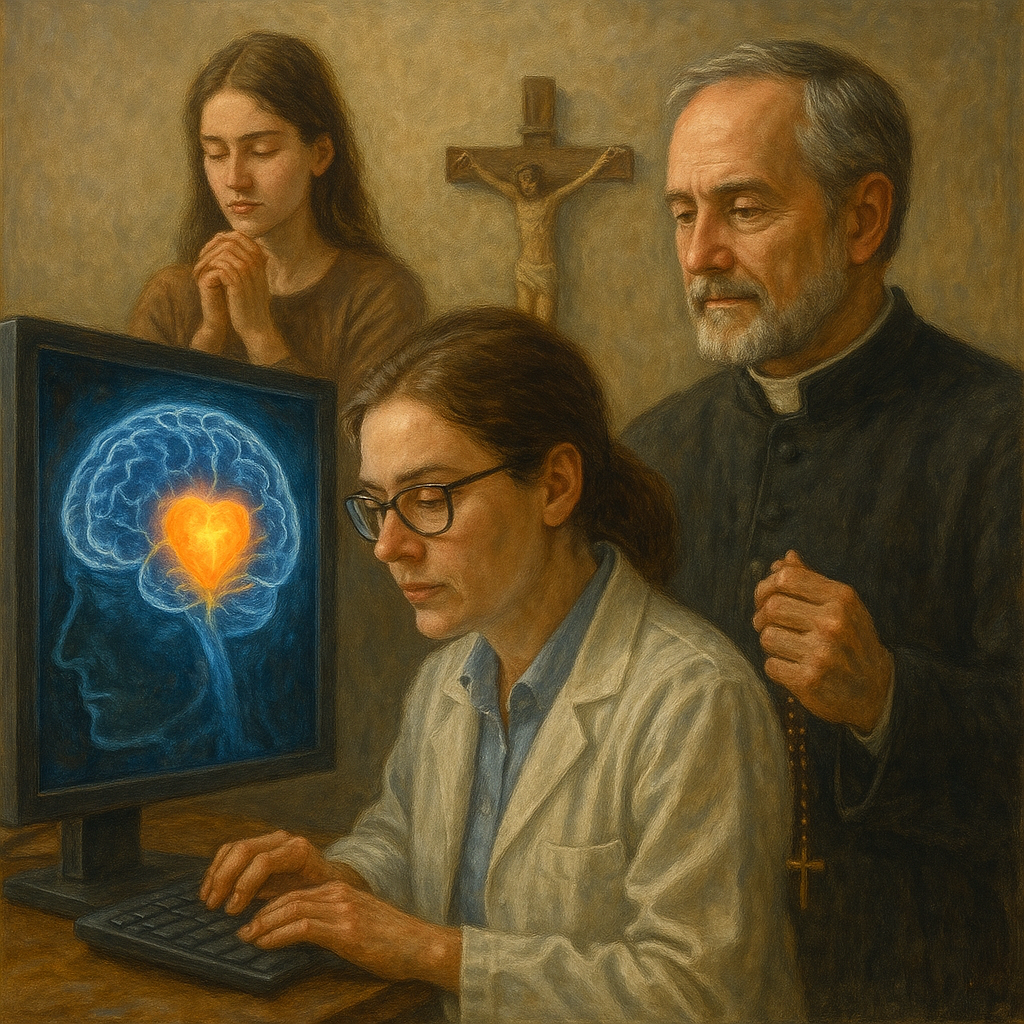Depression and the Dark Night of the Soul: Finding Light in Darkness

Many Catholics experiencing profound sadness, emptiness, or spiritual dryness wonder: "Is this depression, or am I going through a 'dark night of the soul'?" This question reflects the complex relationship between psychological suffering and spiritual growth in Catholic tradition.
Two Different Experiences
While they may share some surface similarities, clinical depression and the dark night of the soul (a concept developed by St. John of the Cross) are distinct experiences:
Clinical Depression
- A medical condition involving persistent changes in brain chemistry and function
- Characterized by persistent sadness, loss of interest, changes in sleep and appetite, fatigue, difficulty concentrating, and sometimes thoughts of death
- Often interferes with basic functioning and daily activities
- May have identifiable triggers but can also occur without clear external causes
- Typically responds to professional treatment (therapy, medication, or both)
The Dark Night of the Soul
- A spiritual process described by mystics as part of the journey toward union with God
- Characterized by a sense of God's absence despite continued faithfulness in prayer
- Typically doesn't interfere with basic functioning, though it involves spiritual suffering
- Often occurs after a period of spiritual consolation and growth
- Leads to spiritual purification and deeper faith when navigated with guidance
The key difference is that depression is fundamentally a medical condition requiring treatment, while the dark night is a spiritual process that, while painful, leads to growth in faith and love.
When They Overlap
For many Catholics, the reality is complex—psychological and spiritual struggles often overlap and influence each other:
- Depression can make prayer feel impossible and God seem distant
- Spiritual struggles can contribute to feelings of worthlessness or hopelessness
- Both can involve questioning God's presence and goodness
- Physical, psychological, and spiritual factors often interact in complex ways
This overlap means that addressing only one dimension—either exclusively spiritual or exclusively psychological—may not provide complete healing.
Discerning the Difference
How can one discern whether they're experiencing depression, a dark night, or both? Consider these guidelines:
- Functional impact: Depression typically impairs basic functioning in ways that the dark night does not
- Physical symptoms: Depression often involves physical symptoms like sleep disturbance and appetite changes
- Response to prayer: In the dark night, faithful prayer continues despite dryness; in depression, prayer itself may feel impossible
- Trajectory: The dark night typically follows spiritual growth; depression can strike regardless of spiritual state
- Duration and pattern: Depression tends to be more persistent without intervention
When in doubt, consulting both a spiritual director and a mental health professional can provide complementary perspectives.
An Integrated Catholic Approach
A truly Catholic approach to these experiences embraces both spiritual and psychological dimensions:
For Clinical Depression
- Professional treatment: Therapy, medication when appropriate, and lifestyle changes
- Spiritual support: Simplified prayer practices, sacramental life, and community support
- Compassionate understanding: Recognizing that depression is not a moral failing or lack of faith
- Hope: Trusting that treatment is effective and that God works through medical means
For the Dark Night
- Spiritual direction: Working with a knowledgeable spiritual director familiar with mystical theology
- Faithful perseverance: Continuing prayer and sacramental participation despite lack of consolation
- Theological understanding: Learning from the writings of saints who experienced similar journeys
- Trust: Believing that God remains present even when not felt
For Overlapping Experiences
- Collaborative care: Mental health professionals and spiritual directors working together
- Holistic approach: Addressing physical, psychological, social, and spiritual needs
- Patience: Recognizing that healing may come gradually through multiple channels
- Community: Drawing on the support of the Church community rather than suffering in isolation
Finding Meaning in Suffering
Catholic tradition offers profound resources for finding meaning in suffering, whether psychological or spiritual. While we should seek appropriate treatment for depression, we can also discover that our darkest experiences—when approached with faith and proper support—can become pathways to deeper compassion, humility, and union with Christ.
As St. Paul writes, "We rejoice in our sufferings, knowing that suffering produces endurance, and endurance produces character, and character produces hope, and hope does not put us to shame" (Romans 5:3-5).
Whether you're experiencing depression, a dark night, or both, know that you're not alone. With appropriate professional care, spiritual guidance, and the support of your Catholic community, even the darkest experiences can eventually lead to light.

